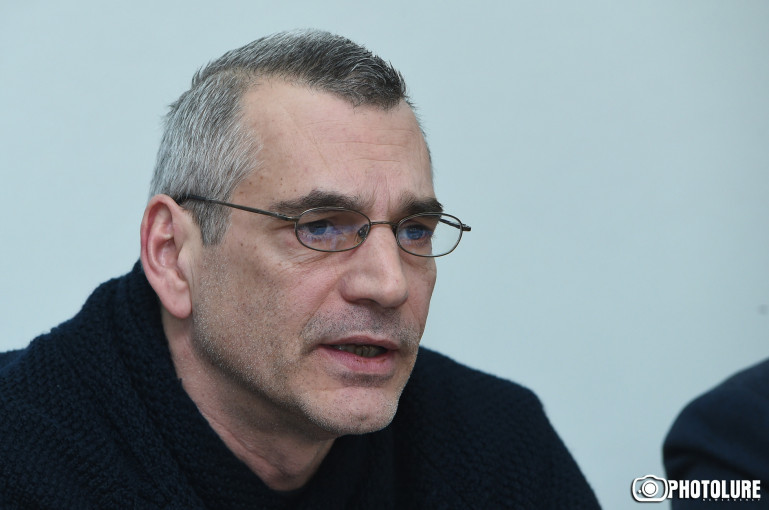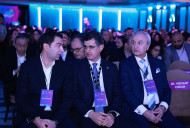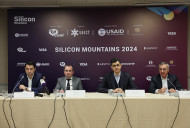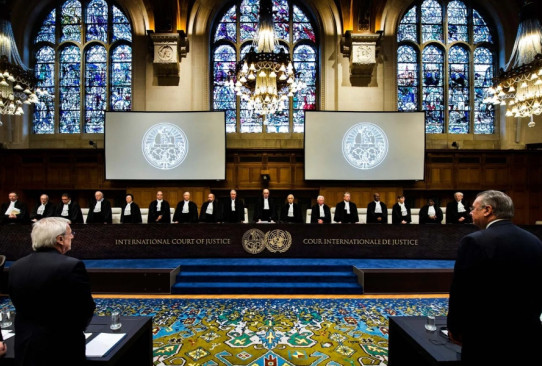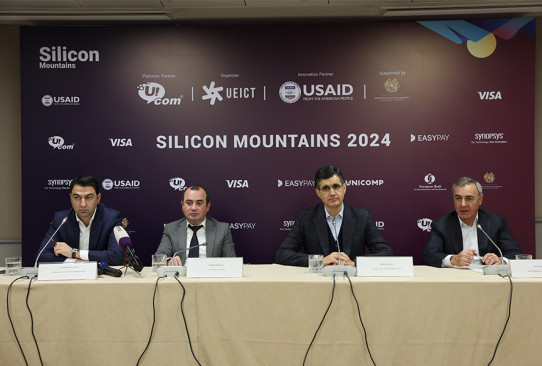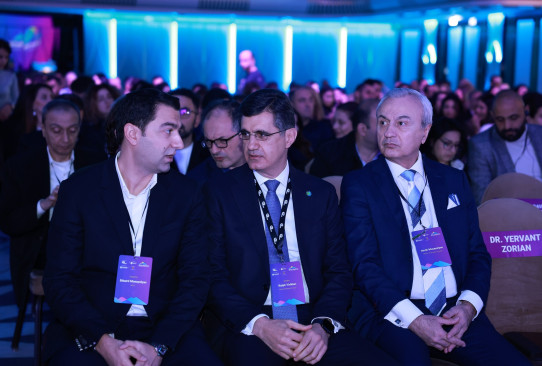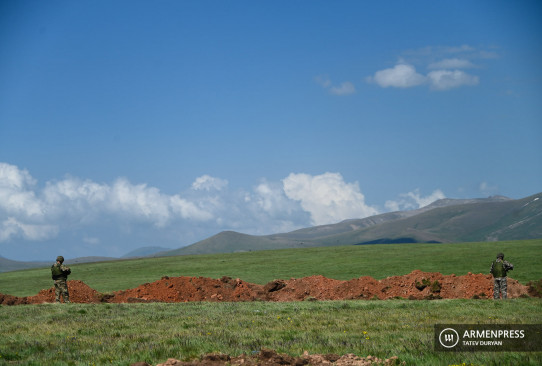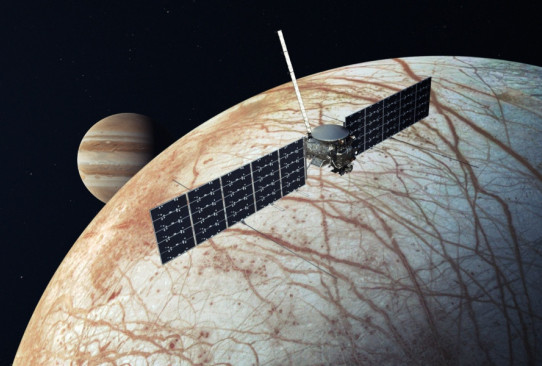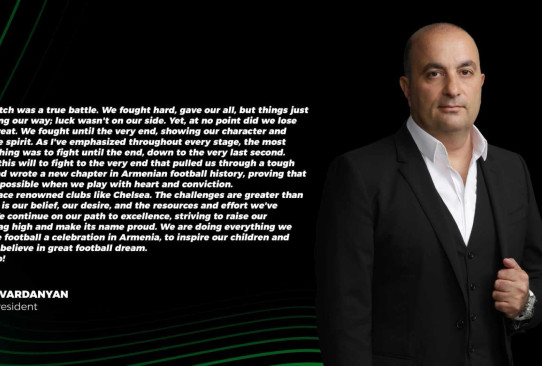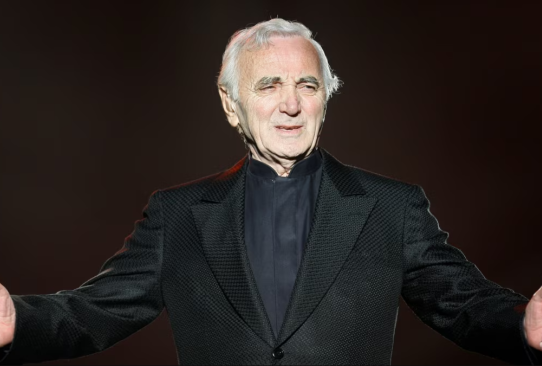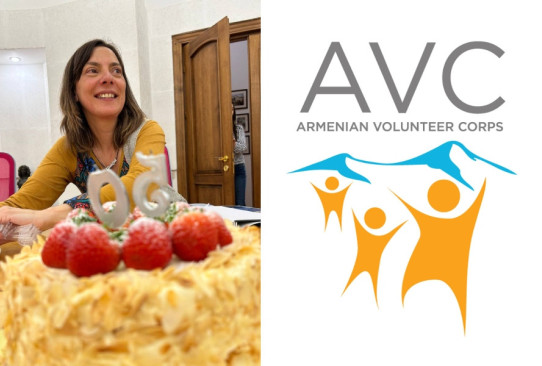After years of commitment to diplomacy, Armenia and Nagorno-Karabkh stand alone with little hope for serious negotiations - Richard Giragosian
Hripsime Hovhannisyan
In an interview with Tert.am, Director of the Regional Studies Center (RSC) Richard Giragosian commented on the recent escalations around Nagorno-Karabakh (Artsakh), stressing the urgent need to overcome the Turkish-Azerbaijani efforts to violate the ceasefire as the first step towards returning to negotiations.
What solutions do you see for Armenian sides in this situation? What should Armenia do? Do you see any possibility for peace negotiations? What will it depend on?
The first step in returning to diplomacy is to overcome the refusal by Azerbaijan and Turkey to even agree to a ceasefire first. And despite years of commitment to diplomacy and concern for peace talks, Armenia and Karabakh now stand alone, with no partner for peace and little hope for sincere or serious negotiations with Azerbaijan.
Hopes for an end to the fighting were bolstered by a Russian diplomatic initiative that succeeded in bringing the Armenian and Azerbaijani sides together on 9 October for their first meeting since the start of the war. As co-chair of the OSCE “Minsk Group,” the sole entity empowered to mediate the Karabakh conflict, Russian President Vladimir Putin sought to broker negotiations over a proposed “humanitarian cessation of hostilities” to halt the war.
Agreeing to Cease Firing is not a Ceasefire
After an apparently painful and often tense 10-hour meeting that was chaired by a frequently frustrated Russian Foreign Minister Sergey Lavrov, the Armenian and Azerbaijani officials accepted a cessation of hostilities to come into effect by noon on 10 October. Although not quite a formal ceasefire agreement, the agreement to cease firing was an important breakthrough. It was also a breakthrough specific to Russian interests, as a way to reassert control and master the situation while also sidelining and marginalizing Turkey from the diplomatic process.
A Humanitarian Cessation
As part of the deal, the Armenian and Azerbaijani ministers agreed to commit to four accompanying provisions. First, the two sides accepted the terms of a Russian proposal for a cessation of hostilities that would allow for the exchange prisoners of war and for the retrieval of the remains of fallen soldiers from the battlefield, to be facilitated by the International Committee of the Red Cross (ICRC), the only trusted third-party engaged in the conflict zone. This first proposal, on the necessity for a respite from combat operations on humanitarian grounds, was the easiest point of agreement, as each side was anxious to demonstrate political will and maturity to recover the corpses and regain their prisoners. Moreover, in the wake of the intensity and severity of the combat, there was a recognition that to reject such a humanitarian move would be irresponsible.
Vague Promises
The second measure was a pledge to hold further talks over the “specific parameters” of the ceasefire, although with no clear deadline or timeframe, and well short of any formal commitment to a lasting and durable ceasefire regime. For the Karabakh Armenian side, the weak language and vague terms of reference for a ceasefire was a disappointment. This issue also revealed the widening divide diplomatically, as Azerbaijan was eager to continue their military campaign in the hope of garnering substantial gains in territory, while Armenia and Karabakh were urgently pressing for a complete and immediate ceasefire after sustaining fairly significant losses.
On that latter point, although the Karabakh Armenian side suffered serious losses in manpower and equipment, this was more of a consideration because of the transparency and open nature of their democratic governance, as the destruction of military equipment and casualties for Azerbaijan was much higher, yet never disclosed due to the strict censorship and Internet restrictions imposed on the Azerbaijani side. Ironically, such a secretive approach to the management of battlefield information from Azerbaijan’s tight censorship and due to the opaque nature of authoritarian rule was counter-productive, triggering an erosion of trust and a lack of reliability that tainted each and every official announcement of gains or claims of victory.
Maintaining the Mediation Model
And finally, the third and fourth points of the agreement referred to the need to return to “substantive negotiations” and reaffirmed the primacy of the existing OSCE model of mediation. Each of these related elements tended to further dilute the power and permanence of the agreement itself, as the two-week war only too clearly demonstrated the demise of diplomacy. And as frustration over the lack of progress from the peace process was also a major factor in driving Azerbaijan to wage war, such a defense of the existing model of talks was also a denial of any attempt to reform of revise the OSCE Minsk Group itself.
An Elusive Victory
Despite the seemingly successful Russian initiative and an investment of diplomatic capital, the cessation of hostilities agreement that resulted from the 10-hour Moscow meeting lasted little more than three hours since it took effect on 10 October. As with other cases of looming ceasefires and moratoriums, the few remaining hours of that Saturday prior to the noon deadline was marked by a rush at retribution by Azerbaijan, with artillery rounds fired onto the Karabakh capital in a sign of anger and frustration.
But more troubling, the cessation of fighting ended after a mere three hours, with little to show for the Moscow talks and no sign of any penalty or punishment for Azerbaijan disregard for earlier promises. By the afternoon of 10 October, Azerbaijani forces resumed their drone attacks in areas to the north and south-west of Karabakh, intent on pushing forward and increasing the destruction of armored units and air defense facilities deeper within Karabakh. And in a sign that only confirmed the misplaced hope for a genuine ceasefire, combat operations intensified and widened to include a resumption of an exchange of artillery volleys and rockets attacks. Thus, any initial optimism was quickly eroded after the ceasefire broke down the next day. But beyond Azerbaijan’s decision to defraud Russia by refusing to cease fire, the more significant obstacle came from Turkey’s determination to defy Russia by rejecting the ceasefire.
A Lost Opportunity
Looking back to that lost opportunity, it is now clear that Azerbaijan was never interested or committed to anything more than a minor respite or a temporary agreement to cease firing, with no real consideration or consideration of consenting to any lasting ceasefire agreement. Moreover, the agreement was doomed from the start, for several reasons. First, the lack of any binding element of the agreement only exacerbates the existence of inequity and asymmetry in terms of power projection and battlefield dominance. In addition, a second factor stemmed from the reality that there was little leverage and even less punitive power behind the Russian bid to bully the combatants into changing course from renewed hostilities to any renewed diplomacy.
And this is an especially important factor in the failure to dissuade Azerbaijan from halting its military offensive. Third, by leaving Armenia more vulnerable as the only side seeking an immediate ceasefire, this Russian effort was exposed as more of an empty gesture, relying on bluff and bluster that failed to intimidate either Azerbaijan or its patron state Turkey. This resulted in a “power exchange” defined by a deeper trend of a shifting balance of power, with a resurgent Turkey empowering an over-confident Azerbaijan to press ahead with the war.
The latter element of Turkey’s role in enabling and empowering Azerbaijan military is also evident in two important ways. First, as a key component of the unprecedented intensity of combat operations over Karabakh has been the widening and expanding scale of Azerbaijani air assaults, graduating from attacks using Turkish military-grade drones (UAVs) to Turkish-supported F-16 combat aircraft sorties and combat air patrols (CAPs). And second, this new emphasis on air power was also significant not only for the heightened operations tempo of combat assaults and attacks, but also in term of the Turkish projection of power into the area of operations that directly challenged and targeted Russian air defense capabilities.
The Outlook
From this perspective of a looming confrontation between Russia and Turkey, it now seem clear that Azerbaijan and Turkey remain committed to continuing the war, and with the expanded battle space to include the unprecedented deployment of air power and assets, the month of October will be even more bloody and deadly if the war is allowed to continue. And as that “hunt for a red October” drags on, the only realistic deterrent to the aspirations of Turkish President Tayyip Recep Erdogan comes from Russian President Vladimir Putin. And despite Russia’s track record of losing friends and gaining enemies, as evident in Georgia, Ukraine and elsewhere, the only real chance for a return to regional security and stability may actually rest on Putin. Thus, no matter how difficult or distasteful it may be to support Putin’s Russia, the threat from Erdogan’s Turkey in this war is by far the greater danger.
How do you evaluate the reaction of international community about the Azerbaijanis-Turkish aggression?
Clearly, the planning and the coordination of the Turkish-backed and -supported Azerbaijani offensive was based on a calculation of timing, seeing that Russia was distracted by the threat of news sanctions from the poisoning of the Russian opposition figure, the Americans were focused on their presidential elections and the EU was engaged in managing a surge of COVID-19 cases
And while the “reaction” of the international community was both slow and weak, it is not a surprise. With little strategic interests in the conflict and limited serious leverage in the region, the weak response by the West was expected. But that is neither an excuse nor a justification for the deafening silence that followed the deadly attacks by Azerbaijan.
Videos

Interview with Francis Malige, EBRD Managing Director
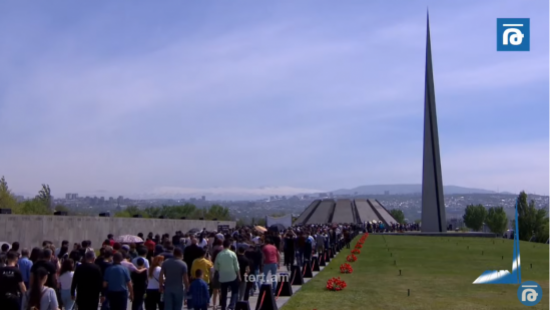
Armenians Commemorating 106th Anniversary of Genocide
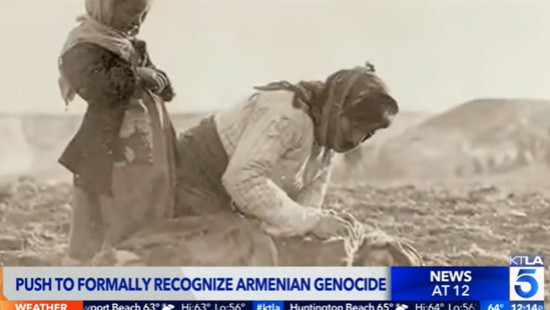
Biden Under Pressure to Recognize Armenian Genocide - KTLA 5 News

Governance and Oversight Capacities Account for Our Bank's Robust Management System - Philip Lynch, Independent Board Member at Ameriabank

'Mr. President, It Is Now in Your Power to Right Decades of Denial' - US Congressman Adam Schiff Urges Joe Biden to Recognize Armenian Genocide
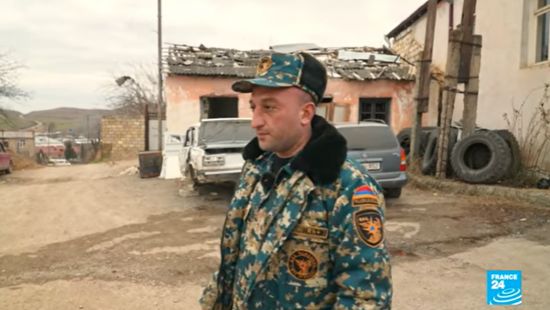
Armenians of Nagorno-Karabakh in Despair After Trauma of Military Defeat - France 24
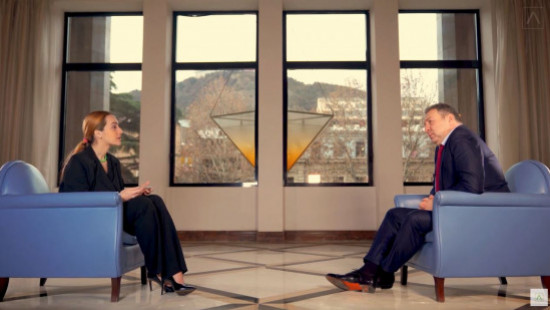
Interview with Kakhaber Kiknavelidze, an Independent Member of Ameriabank Board of Directors

Only Terrorists Keep Hostages, Putting Forward Preconditions for Their Release - Edmon Marukyan

Rep Adam Schiff Says Congress Should Recognize Artsakh
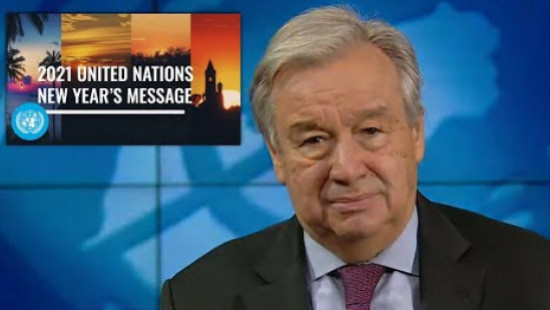
UN's Guterres Issues Global Appeal to Make 2021 'Year of Healing'

NASA's Mars 2020 Perseverance Rover Landing Animations

Azerbaijan Uses Prohibited Phosphorus Chemical Munitions - Defense Army Video

Artsakh Defense Army Units Neutralizing Azerbaijani Arms Supplies

Artsakh Defense Army Units Neutralizing Azerbaijani Drone
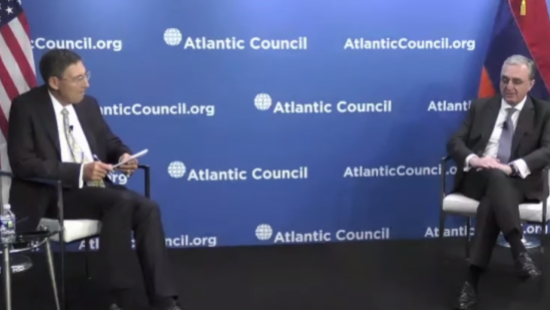
Nagorno-Karabakh's Status Has Been At the Heart of Our Approach - Zohrab Mnatsakanyan

Artsakh Defense Army Releases Video Featuring Damaged Azerbaijani Military Equipment

Artsakh Defense Army Units Inflicting Manpower Losses on Azerbaijan

Gas Pipeline Damaged in Azerbaijani Fire Targeting Nagorno-Karabakh's Capital

President Armen Sarkissian Meets Emmanuel Macron at Élysée Palace

Artsakh Defense Army Neutralizes Azerbaijani Military Hardware
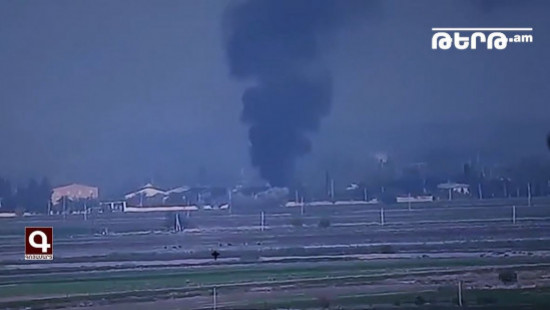
Artsakh Defense Army Units Neutralizing Azerbaijani Military Infrastructures

President Armen Sarkissian Meets with NATO Secretary-General in Brussels
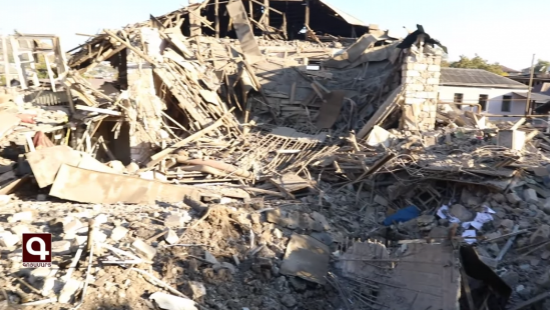
Buildings and Homes Lying in Ruins in Nagorno-Karabakh's Capital After Azerbaijani Shelling
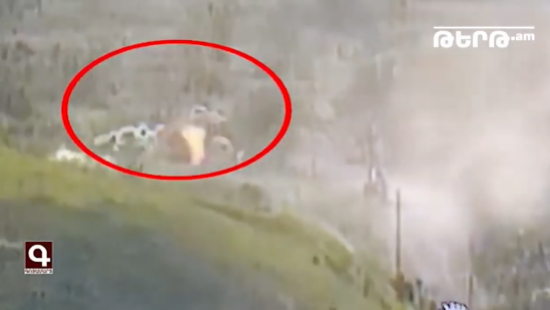
Artsakh Defense Army's Precision Fire Gives Deadly Blow to Enemy
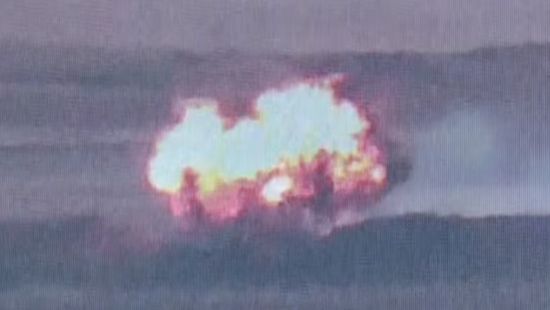
Artsakh Defense Army Units Destroying Azerbaijani Tank

Zohrab Mnatsakanyan: Ceasefire Does not Mandate Azerbaijan to Kill Civilians and Hit Civilian Settlements
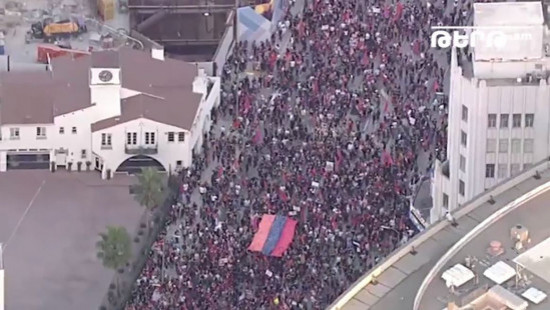
Armenians Protest Outside Turkrish Embassy in Los Angeles
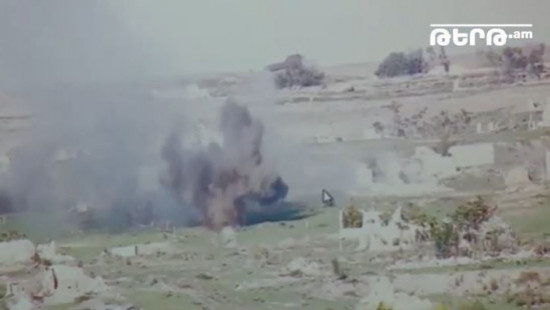
Losses in Azerbaijan's Military Featured in Defense Army Footage
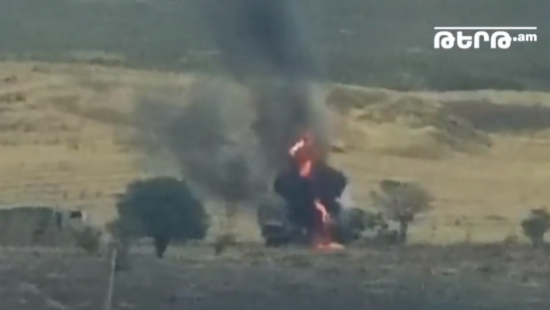
Artsakh Defense Army Neutralizing Adversary's Transport Column
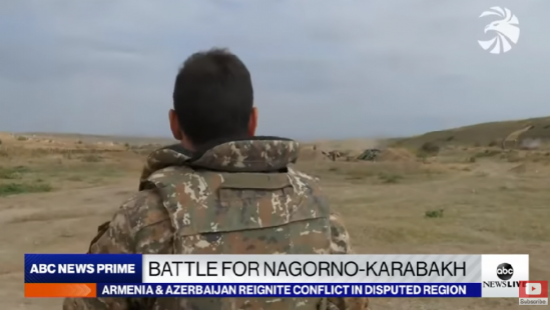
Turkey openly backs Azerbaijan 'far more aggressively than in the past' - ABC News on Syrian mercenaries fighting in Karabakh
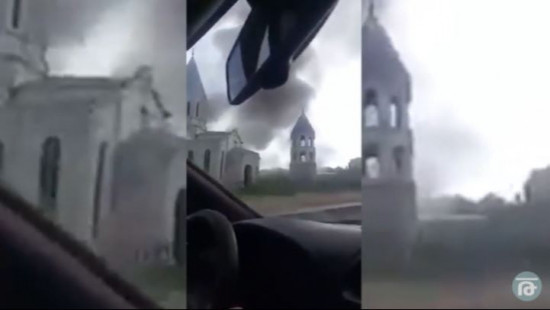
Iconic Armenian Church Hit in Azerbaijani Attacks in Nagorno-Karabakh City (photos)
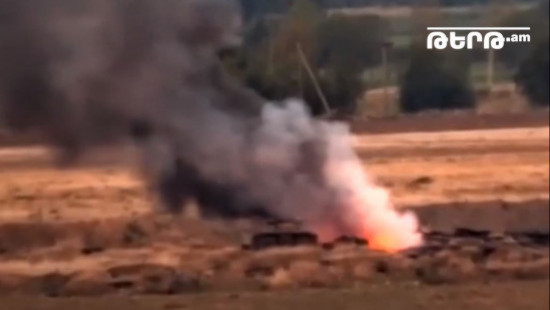
Artsakh Defense Army Continues High-Precision Strikes
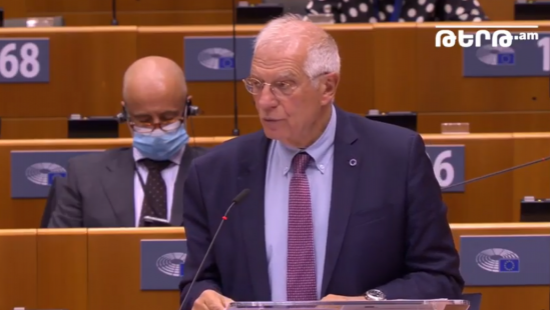
War Situation in Karabakh on European Parliament's Agenda
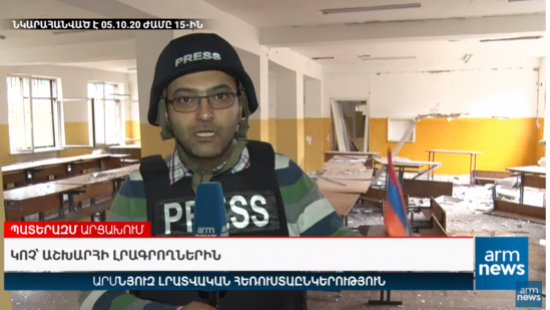
Call for Urgent Action: Armenian Journalist Brings Intn'l Colleagues' Attention to Situation iin Artsakh After Azerbaijani Attacks
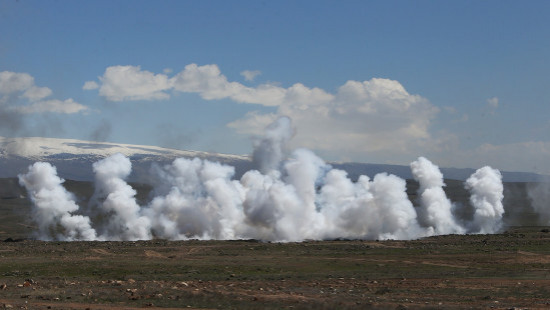
Turkey's Support to Syrian Mercenaries Fighting Against Artsakh: Facts About Azerbaijani Aggression
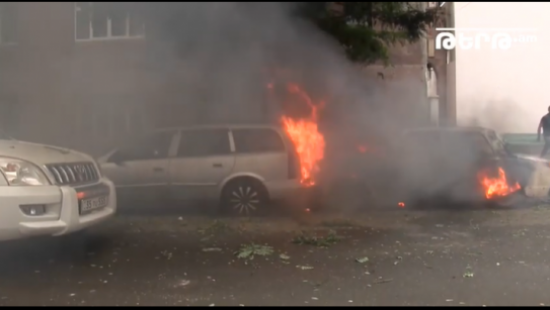
Nagorno-Karabakh's Capital Under Azerbaijani Strikes
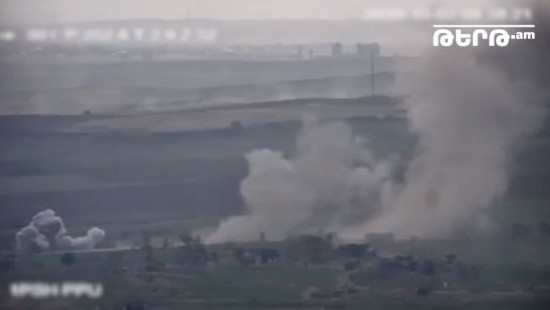
Armenian Armed Forces Neutralize Azerbaijani Defense Positions
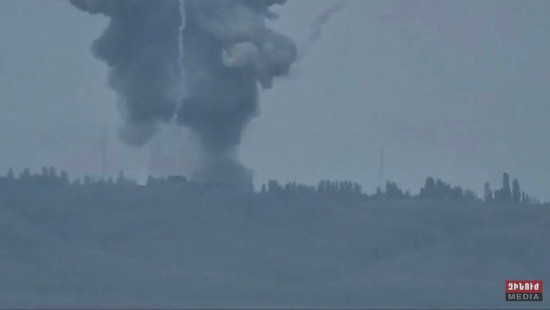
ArmenianTroops Destroy Azerbaijani Armored Fighting Vehicle on Frontline
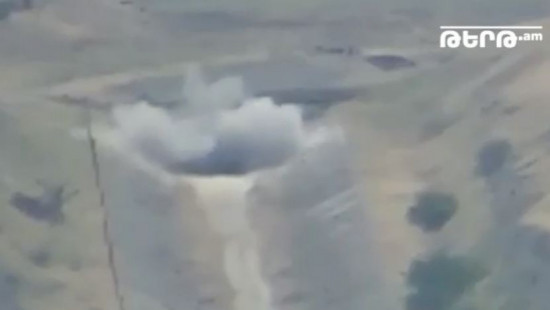
There is a solid evidence that Azerbaijan has launched a thoroughly planned attack on the NKR
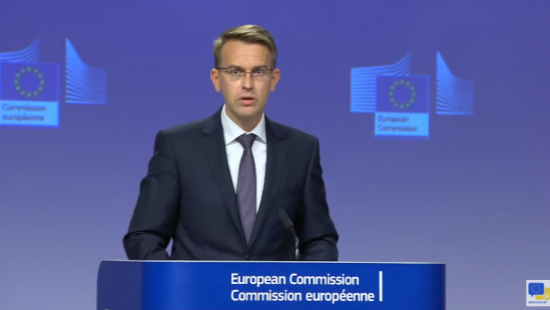
EU calls for Immediate End to Hostilities over Nagorno-Karabakh
-
 15:20 • 24.05.21
Interview with Francis Malige, EBRD Managing Director
15:20 • 24.05.21
Interview with Francis Malige, EBRD Managing Director
-
 11:39 • 24.04.21
Armenians Commemorating 106th Anniversary of Genocide
11:39 • 24.04.21
Armenians Commemorating 106th Anniversary of Genocide
-
 09:40 • 23.04.21
Biden Under Pressure to Recognize Armenian Genocide - KTLA 5 News
09:40 • 23.04.21
Biden Under Pressure to Recognize Armenian Genocide - KTLA 5 News
-
 15:34 • 22.04.21
Governance and Oversight Capacities Account for Our Bank's Robust Management System - Philip Lynch, Independent Board Member at Ameriabank
15:34 • 22.04.21
Governance and Oversight Capacities Account for Our Bank's Robust Management System - Philip Lynch, Independent Board Member at Ameriabank
-
 14:09 • 21.04.21
'Mr. President, It Is Now in Your Power to Right Decades of Denial' - US Congressman Adam Schiff Urges Joe Biden to Recognize Armenian Genocide
14:09 • 21.04.21
'Mr. President, It Is Now in Your Power to Right Decades of Denial' - US Congressman Adam Schiff Urges Joe Biden to Recognize Armenian Genocide
-
 12:37 • 03.04.21
Armenians of Nagorno-Karabakh in Despair After Trauma of Military Defeat - France 24
12:37 • 03.04.21
Armenians of Nagorno-Karabakh in Despair After Trauma of Military Defeat - France 24
-
 17:33 • 11.03.21
Interview with Kakhaber Kiknavelidze, an Independent Member of Ameriabank Board of Directors
17:33 • 11.03.21
Interview with Kakhaber Kiknavelidze, an Independent Member of Ameriabank Board of Directors
-
 17:57 • 26.01.21
Only Terrorists Keep Hostages, Putting Forward Preconditions for Their Release - Edmon Marukyan
17:57 • 26.01.21
Only Terrorists Keep Hostages, Putting Forward Preconditions for Their Release - Edmon Marukyan
-
 13:33 • 22.01.21
Rep Adam Schiff Says Congress Should Recognize Artsakh
13:33 • 22.01.21
Rep Adam Schiff Says Congress Should Recognize Artsakh
-
 09:42 • 29.12.20
UN's Guterres Issues Global Appeal to Make 2021 'Year of Healing'
09:42 • 29.12.20
UN's Guterres Issues Global Appeal to Make 2021 'Year of Healing'
-
 18:41 • 24.12.20
NASA's Mars 2020 Perseverance Rover Landing Animations
18:41 • 24.12.20
NASA's Mars 2020 Perseverance Rover Landing Animations
-
 13:33 • 31.10.20
Azerbaijan Uses Prohibited Phosphorus Chemical Munitions - Defense Army Video
13:33 • 31.10.20
Azerbaijan Uses Prohibited Phosphorus Chemical Munitions - Defense Army Video
-
 16:37 • 30.10.20
Artsakh Defense Army Units Neutralizing Azerbaijani Arms Supplies
16:37 • 30.10.20
Artsakh Defense Army Units Neutralizing Azerbaijani Arms Supplies
-
 11:25 • 28.10.20
Artsakh Defense Army Units Neutralizing Azerbaijani Drone
11:25 • 28.10.20
Artsakh Defense Army Units Neutralizing Azerbaijani Drone
-
 13:45 • 24.10.20
Nagorno-Karabakh's Status Has Been At the Heart of Our Approach - Zohrab Mnatsakanyan
13:45 • 24.10.20
Nagorno-Karabakh's Status Has Been At the Heart of Our Approach - Zohrab Mnatsakanyan
-
 11:51 • 24.10.20
Artsakh Defense Army Releases Video Featuring Damaged Azerbaijani Military Equipment
11:51 • 24.10.20
Artsakh Defense Army Releases Video Featuring Damaged Azerbaijani Military Equipment
-
 11:40 • 24.10.20
Artsakh Defense Army Units Inflicting Manpower Losses on Azerbaijan
11:40 • 24.10.20
Artsakh Defense Army Units Inflicting Manpower Losses on Azerbaijan
-
 10:39 • 24.10.20
Gas Pipeline Damaged in Azerbaijani Fire Targeting Nagorno-Karabakh's Capital
10:39 • 24.10.20
Gas Pipeline Damaged in Azerbaijani Fire Targeting Nagorno-Karabakh's Capital
-
 12:41 • 23.10.20
President Armen Sarkissian Meets Emmanuel Macron at Élysée Palace
12:41 • 23.10.20
President Armen Sarkissian Meets Emmanuel Macron at Élysée Palace
-
 12:16 • 23.10.20
Artsakh Defense Army Neutralizes Azerbaijani Military Hardware
12:16 • 23.10.20
Artsakh Defense Army Neutralizes Azerbaijani Military Hardware
-
 12:02 • 22.10.20
Artsakh Defense Army Units Neutralizing Azerbaijani Military Infrastructures
12:02 • 22.10.20
Artsakh Defense Army Units Neutralizing Azerbaijani Military Infrastructures
-
 10:35 • 22.10.20
President Armen Sarkissian Meets with NATO Secretary-General in Brussels
10:35 • 22.10.20
President Armen Sarkissian Meets with NATO Secretary-General in Brussels
-
 10:51 • 17.10.20
Buildings and Homes Lying in Ruins in Nagorno-Karabakh's Capital After Azerbaijani Shelling
10:51 • 17.10.20
Buildings and Homes Lying in Ruins in Nagorno-Karabakh's Capital After Azerbaijani Shelling
-
 15:09 • 15.10.20
Artsakh Defense Army's Precision Fire Gives Deadly Blow to Enemy
15:09 • 15.10.20
Artsakh Defense Army's Precision Fire Gives Deadly Blow to Enemy
-
 13:13 • 13.10.20
Artsakh Defense Army Units Destroying Azerbaijani Tank
13:13 • 13.10.20
Artsakh Defense Army Units Destroying Azerbaijani Tank
-
 12:56 • 12.10.20
Zohrab Mnatsakanyan: Ceasefire Does not Mandate Azerbaijan to Kill Civilians and Hit Civilian Settlements
12:56 • 12.10.20
Zohrab Mnatsakanyan: Ceasefire Does not Mandate Azerbaijan to Kill Civilians and Hit Civilian Settlements
-
 12:23 • 12.10.20
Armenians Protest Outside Turkrish Embassy in Los Angeles
12:23 • 12.10.20
Armenians Protest Outside Turkrish Embassy in Los Angeles
-
 17:23 • 09.10.20
Losses in Azerbaijan's Military Featured in Defense Army Footage
17:23 • 09.10.20
Losses in Azerbaijan's Military Featured in Defense Army Footage
-
 15:53 • 09.10.20
Artsakh Defense Army Neutralizing Adversary's Transport Column
15:53 • 09.10.20
Artsakh Defense Army Neutralizing Adversary's Transport Column
-
 14:11 • 09.10.20
Turkey openly backs Azerbaijan 'far more aggressively than in the past' - ABC News on Syrian mercenaries fighting in Karabakh
14:11 • 09.10.20
Turkey openly backs Azerbaijan 'far more aggressively than in the past' - ABC News on Syrian mercenaries fighting in Karabakh
-
 15:52 • 08.10.20
Iconic Armenian Church Hit in Azerbaijani Attacks in Nagorno-Karabakh City (photos)
15:52 • 08.10.20
Iconic Armenian Church Hit in Azerbaijani Attacks in Nagorno-Karabakh City (photos)
-
 10:57 • 08.10.20
Artsakh Defense Army Continues High-Precision Strikes
10:57 • 08.10.20
Artsakh Defense Army Continues High-Precision Strikes
-
 14:24 • 07.10.20
War Situation in Karabakh on European Parliament's Agenda
14:24 • 07.10.20
War Situation in Karabakh on European Parliament's Agenda
-
 19:31 • 05.10.20
Call for Urgent Action: Armenian Journalist Brings Intn'l Colleagues' Attention to Situation iin Artsakh After Azerbaijani Attacks
19:31 • 05.10.20
Call for Urgent Action: Armenian Journalist Brings Intn'l Colleagues' Attention to Situation iin Artsakh After Azerbaijani Attacks
-
 16:17 • 04.10.20
Turkey's Support to Syrian Mercenaries Fighting Against Artsakh: Facts About Azerbaijani Aggression
16:17 • 04.10.20
Turkey's Support to Syrian Mercenaries Fighting Against Artsakh: Facts About Azerbaijani Aggression
-
 12:39 • 04.10.20
Nagorno-Karabakh's Capital Under Azerbaijani Strikes
12:39 • 04.10.20
Nagorno-Karabakh's Capital Under Azerbaijani Strikes
-
 13:49 • 03.10.20
Armenian Armed Forces Neutralize Azerbaijani Defense Positions
13:49 • 03.10.20
Armenian Armed Forces Neutralize Azerbaijani Defense Positions
-
 10:12 • 29.09.20
ArmenianTroops Destroy Azerbaijani Armored Fighting Vehicle on Frontline
10:12 • 29.09.20
ArmenianTroops Destroy Azerbaijani Armored Fighting Vehicle on Frontline
-
 23:42 • 28.09.20
There is a solid evidence that Azerbaijan has launched a thoroughly planned attack on the NKR
23:42 • 28.09.20
There is a solid evidence that Azerbaijan has launched a thoroughly planned attack on the NKR
-
 18:45 • 28.09.20
EU calls for Immediate End to Hostilities over Nagorno-Karabakh
18:45 • 28.09.20
EU calls for Immediate End to Hostilities over Nagorno-Karabakh
Most popular articles Today Yesterday For a week
-
 Politics 10:36 • 13/11 Musk and Ramaswamy will head Department of Government Efficiency, Fox News host to head Pentagon Presidentelect Donald Trump announced Tuesday that Elon Musk and Vivek Ramaswamy will lead a new “Department of Government Efficiency” in his second administration “Together, these two wond
Politics 10:36 • 13/11 Musk and Ramaswamy will head Department of Government Efficiency, Fox News host to head Pentagon Presidentelect Donald Trump announced Tuesday that Elon Musk and Vivek Ramaswamy will lead a new “Department of Government Efficiency” in his second administration “Together, these two wond
Economy
-
16:51 • 11.11.24 New features for Armeconombank’s Premium cardholders
-
12:16 • 08.11.24 Ucom and Sunchild NGO install another solar plant in Areni
Event
-
11:37 • 10.11.24 Over 100,000 people protest in Valencia over floods
-
17:34 • 05.11.24 Ucom joins Armenian Internet Governance Forum as a platinum partner
Science/tech
-
14:18 • 08.05.24 AstraZeneca withdrawing Covid vaccine worldwide
